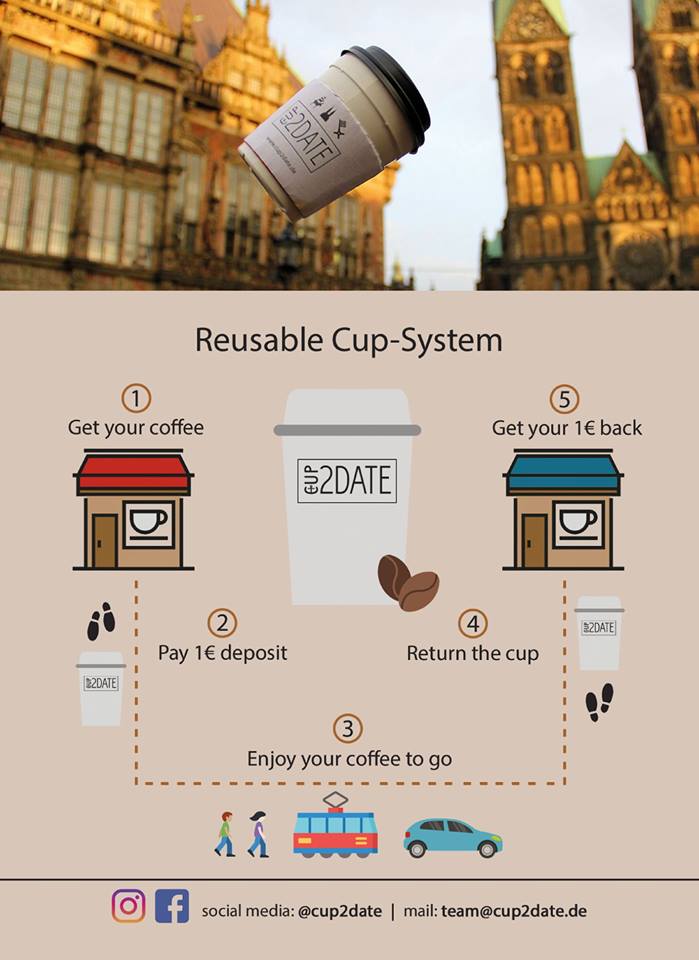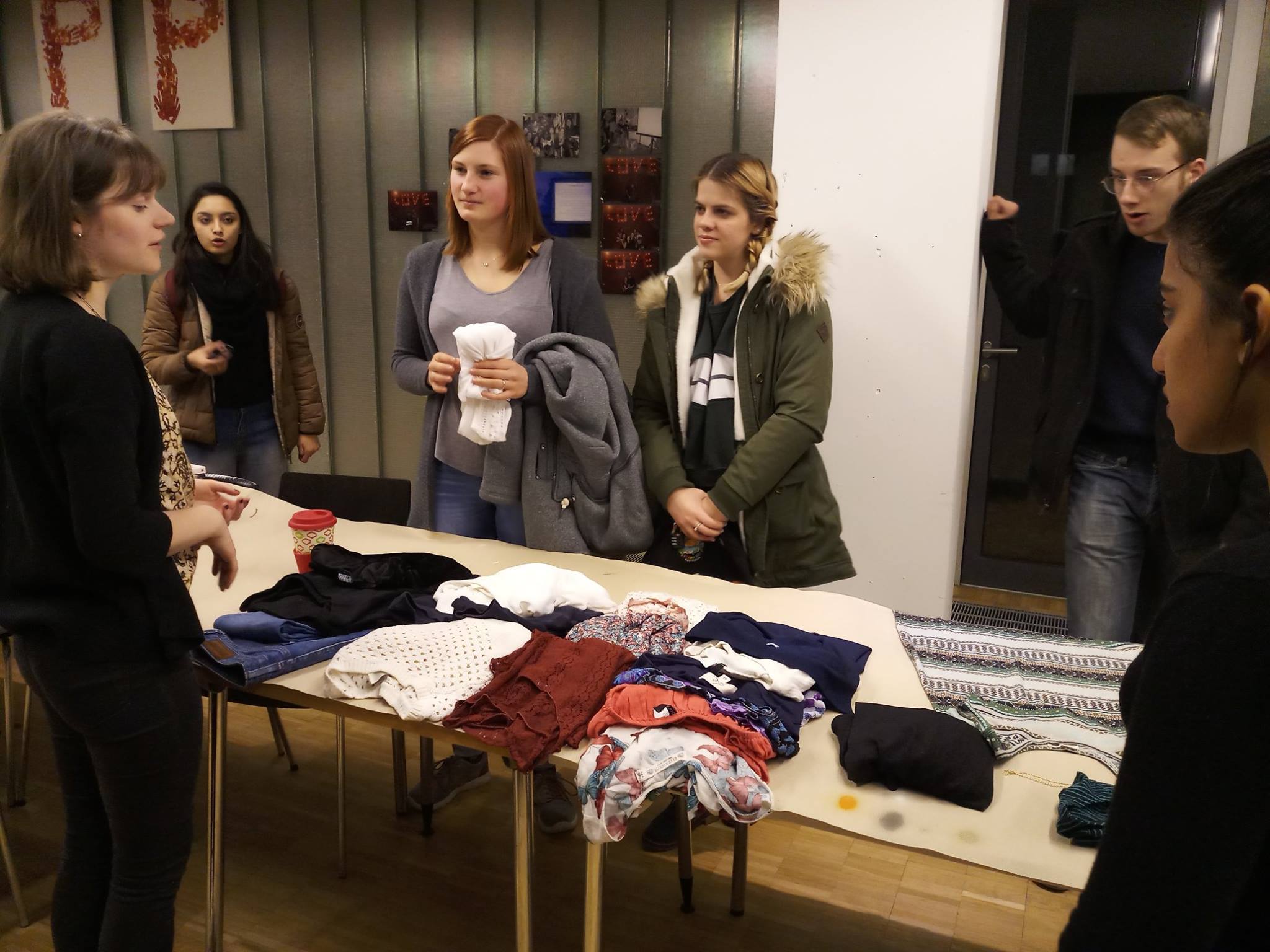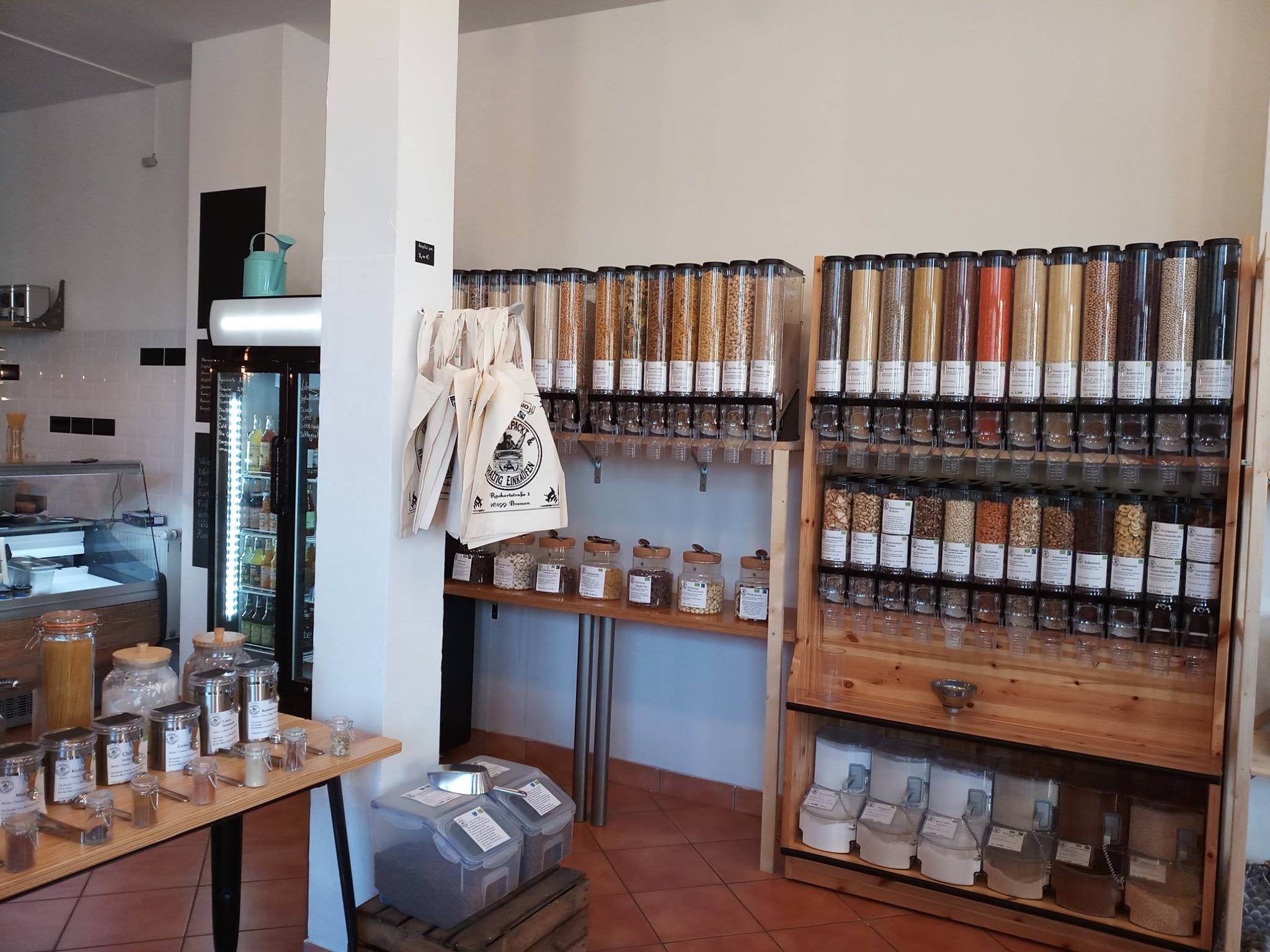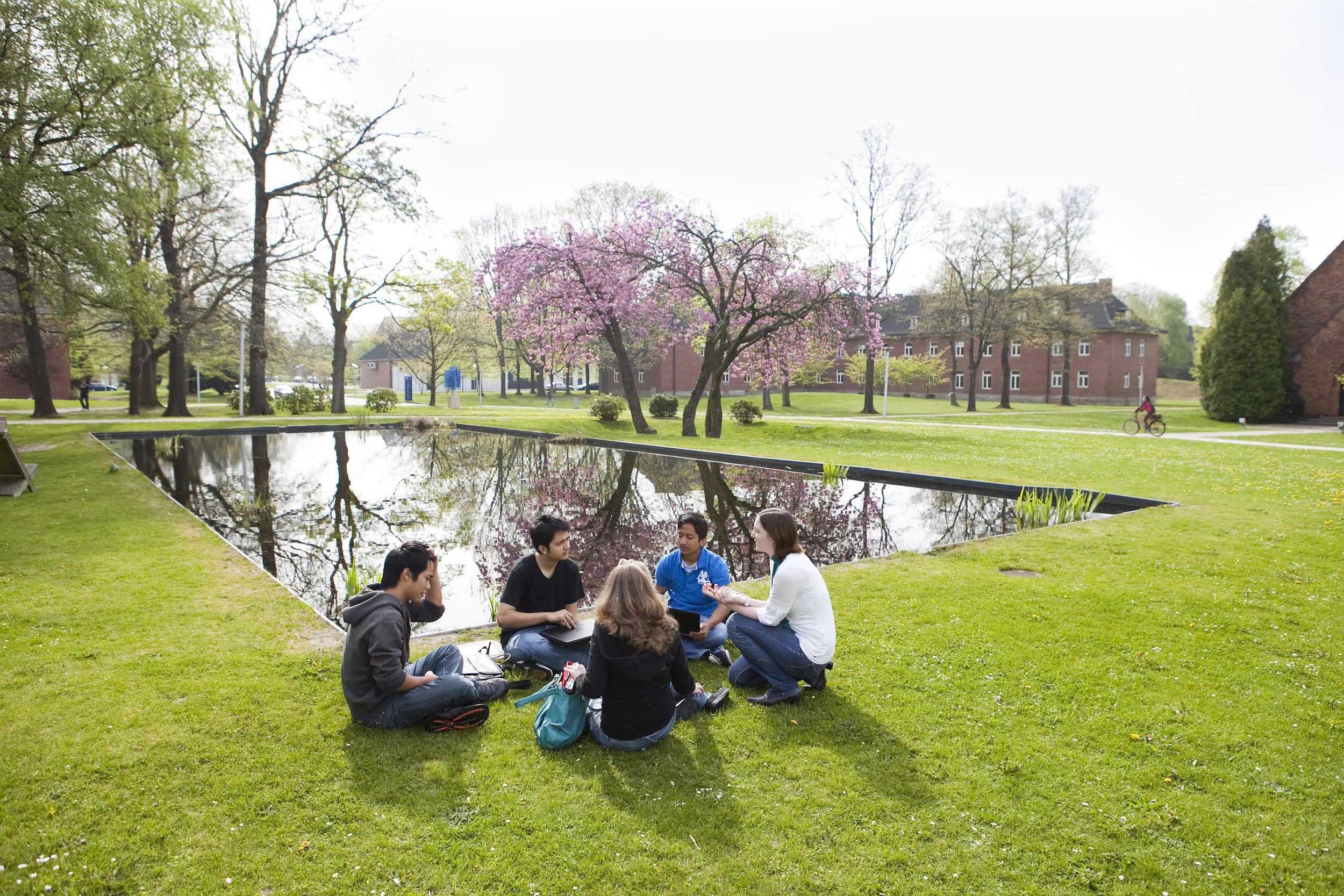Brought to you by Jacobs University’s Environmental Club
All over the world, environmental pollution and climate change are in the focus of public discussion. Young people show an especially high engagement to change our society and politics for the better - also at Jacobs University. The Environmental Club is a student-run club which consists of students from different countries, majors, and years. Whichever background we may have, what unites us is our passion for the environment and a drive to prevent the drastic consequences of climate change. We organize hands on events such as our campus clean up, an eco-friendly cook-off or our Awareness Week which is filled with useful workshops, cozy movie nights, and informative presentations. Additionally, we are involved in more administrative work to improve the entire university’s sustainability. Our goal is to contribute to the conservation of our beautiful planet by popularizing a green lifestyle among our students who will eventually be the leaders of tomorrow.
Below you will find our 7 Tips for a Greener Life on campus. Though focused on the specific case of life at Jacobs, the ideas and moreover the spirit behind them can be applied wherever in the world you might be:
1. Use our wonderful Cup2Date system at the CoffeeBar

If you were to ask students what their favorite place on campus is, the coffee bar would likely be at the top. The Coffee Bar never fails to please with its assortment of muffins, sandwiches, and drinks. The downside to such popularity however is that we end up using and throwing away an insane number of disposable cups. It doesn’t have to stay that way.
Next time you visit the Coffee Bar, ask for your drink in a “Cup2Date”. Your drink will then be served in a reusable cup that you can later return and receive your 1 Euro deposit back.
If you want to take it take it to the next level, why not take your own coffee mug everywhere you go?
2. Repair your own stuff instead of buying a new one, or ask someone from the community for help
The zipper of your favorite jacket is coming off? That’s not the end of the world (or the jacket) but something that can easily be fixed with some garn and a teeny know-how. Instead of throwing out old items with little defects, opt for repairing them whether you do it yourself, ask a friend, or go to a professional. Not only does it save you money, but you also spare all the resources that are required in the making of a new product.
3. Look to buy second-hand

On a similar note, look for second hand items when you need something. Just like with repairing your items instead of buying new, you save money and you prevent things from ending up as waste. In fact, we already have quite a booming second-hand market when it comes to furniture, decorations, and the like for our rooms on campus. When you are in need of something, an easy solution is simply to look within the community.
Fun Fact: The Environmental Club organized a mini flea market last semester which turned out to be quite popular!
4. Don’t print all of your assigned readings
Some classes really do assign seemingly impossible amounts of readings, and if you opt to print all of them, you will quickly find yourself under a mountain of paper. The good news is that students before you had the same problems. If you are lucky, you can find the complete reading list as a printout in the Quiet Study Area of your college. Alternatively, you can ask your peers for the digital versions of the papers (the same holds true for books). You can also reuse protocols for the lab from earlier rotations, just make sure that they are still up to date.
5. Try out our yummy vegan and vegetarian options at the serveries
After several meetings with our caterer Apetito last semester, we have achieved the introduction of at least one main vegan meal in the serveries every day - easily identifiable by the two carrots symbol. They have prepared many new plant-based dishes that taste fantastic, so don’t be afraid to try them out even if you’re an avid meat-eater.
Of course, for those that really want to take sustainable lifestyle seriously, we recommend to cut out animal products from your diet entirely. But even for those who don’t see this as an option yet, try substituting at least some of your meat with fresh fruits and vegetables. Not only will the planet thank you for it but so will your body.
6. Speaking of food - try to avoid unnecessary packaging or throwing away leftovers

Many people underestimate the role that food production and waste plays in emitting greenhouse gases. Since we don’t cook for ourselves on campus, it becomes easy to lose track of how much food we waste and the impact this may have. If we all pay attention to the amount of food we waste and aim to reduce it, our collective impact will be significant.
Another impactful habit is to start consuming products with minimal or no packaging, and to take your own bags when you go shopping. Here are some pictures taken during an Environmental Club trip to L’Epicerie Bio Unverpackt, one of the package-free stores in downtown Bremen.
7. Make use of our semester ticket and explore Bremen and surroundings
Our semester ticket allows us to travel anywhere in Bremen and to countless destinations nearby using regional trains without having to pay anything. The reach of the ticket even extends to Hengelo in The Netherlands.
If you’ve caught the travel bug, why not explore and get to know the surrounding region instead of flying to popular holiday locations only to receive the tourist experience? Make the most of your semester ticket while you’re here!
By Jacobs University’s Environmental Club
